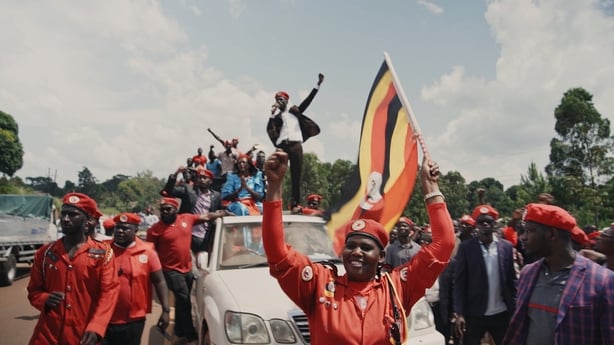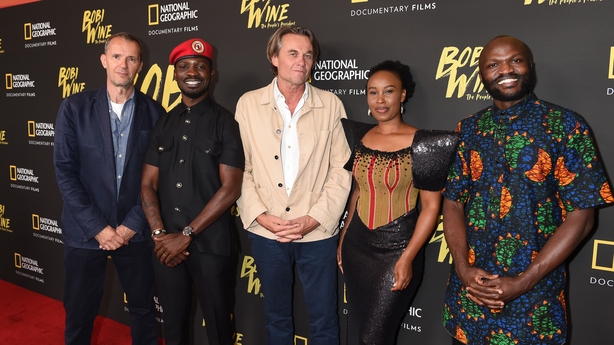A succession of excellent documentaries - among them the films The Last Rider, The Deepest Breath, and Face Down, and the BBC series Once Upon a Time in Northern Ireland on the RTÉ Player - continues with this must-see via National Geographic.
It's a five-years-in-the-making study of Ugandan pop star turned politician Robert Kyagulanyi Ssentamu - aka Bobi Wine - and the efforts of his National Unity Platform to end the decades-long rule of the autocrat Yoweri Museveni.
Bobi Wine: The People's President is, simultaneously, an inspiring and harrowing watch. It also brings to mind the quote of the Dublin singer and song collector Frank Harte: "If you want to know the facts, consult the history books. If you want to know what it felt like, ask a singer."

Filled with the tension of a conspiracy thriller, but with the gravest of real-life implications, the film marks out Ugandan-born rookie directors Moses Bwayo and Christopher Sharp as a brilliant team. Their courage and commitment to tell this story hooks you from the off.
In Wine and his wife Barbie Kyagulanyi, they have a fascinating duo, and the access Bwayo and Sharp have to their professional and personal lives is startling.
At the centre of this film is the campaign leading up to Uganda's January 2021 general election. As Wine's message gains momentum, the situation becomes ever more volatile. There are arrests, beatings, and deaths in the run-up to polling, with the viewer dreading what the next day will bring. "My most important mission is to be alive seven days from now," says Wine. As the walls close in, the filmmakers are in his home.
Directors Bwayo and Sharp filmed 4,000 hours of footage. There is a lot to fit in to make a coherent narrative and, they say, a lot that could not be used because it was too graphic. In the aftermath of filming, Bwayo fled Uganda and is currently based in Los Angeles where he is seeking asylum. Sharp is an expatriate based in the UK.

Bobi Wine: The People's President would have benefited from more background information about Museveni's rise to power and how it has been retained, but you will feel compelled to dig deeper after the final credits. Our own travails as a nation are also put into perspective - the humbling phrase 'First World problems' taking on a new level of significance for the cossetted viewer.
In a January 2021 statement about the Ugandan election, the European Union said it regretted "that the disproportionate role given to security forces during the elections brought forth violence in the pre-electoral period, harassment of opposition leaders, suppression of civil society actors and media, and the raiding of a domestic observers [sic] office".
The next election in Uganda is scheduled for 2026.














